Posted February 04th 2019
Our delegates were welcomed by NCMH director Professor Ian Jones and centre manager Dr Laura Bunting, who introduced Dr Steve Beyer who leads on the learning disability work taking place at NCMH.
Steve leads on NCMH’s work with Engage to Change, a project which aims to create and support employment opportunities for 16-25 years olds with learning disability and/or autism.
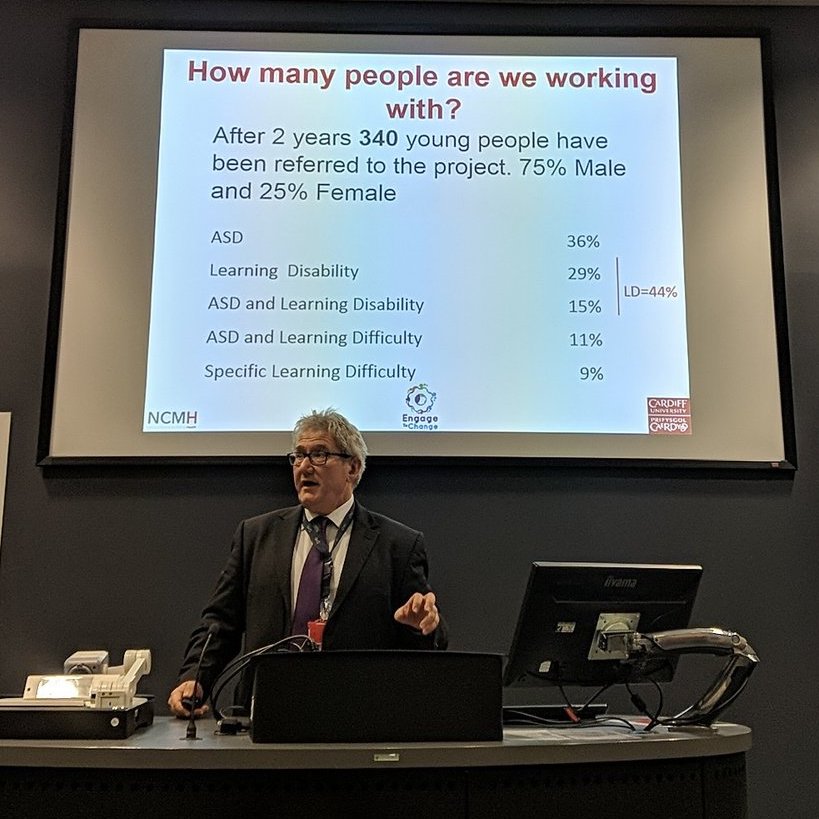
Currently, our learning disability cohort has 165 participants. 86 have at least one comorbid mental health problem, including Autism Spectrum Disorder, depression and anxiety.
We need people to have a better stake in research, working with communities to find the questions that are key to people with learning disabilities
Dr Steve Beyer
We were pleased to welcome Dr Jack Underwood from the MRC Centre for Neuropsychiatric Genetics and Genomics who explained how NCMH cohort data has been used for research into autism spectrum disorders.
Jack and his colleagues are setting up the first national study of people with autism by combining anonymised data of 30,000 people with ASD in Wales through SAIL with genetic data NCMH.
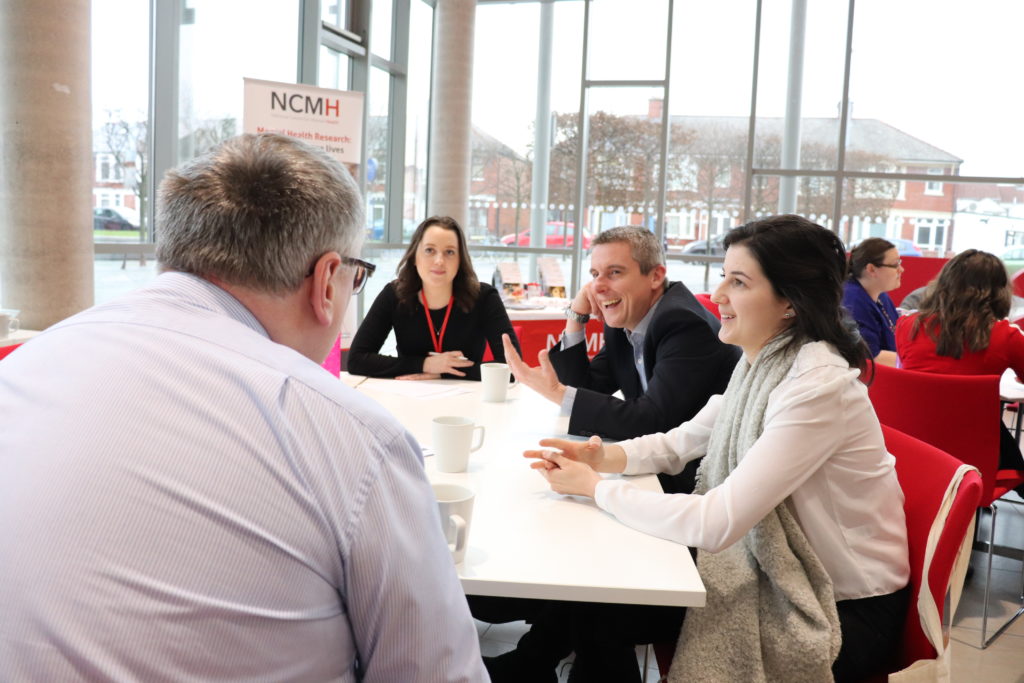
Attendees also heard from Rebecca Lynch about the Mood Awareness Programme (MAP), which is a psychoeducation intervention for people with learning disabilities and mood problems. Rebecca leads the psychoeducation programmes at NCMH.
Finally, we welcomed Joe Powell, the national director for All Wales People First. Joe discussed the role that society can play in research and challenged the academic and medical community to better integrate with the social model.
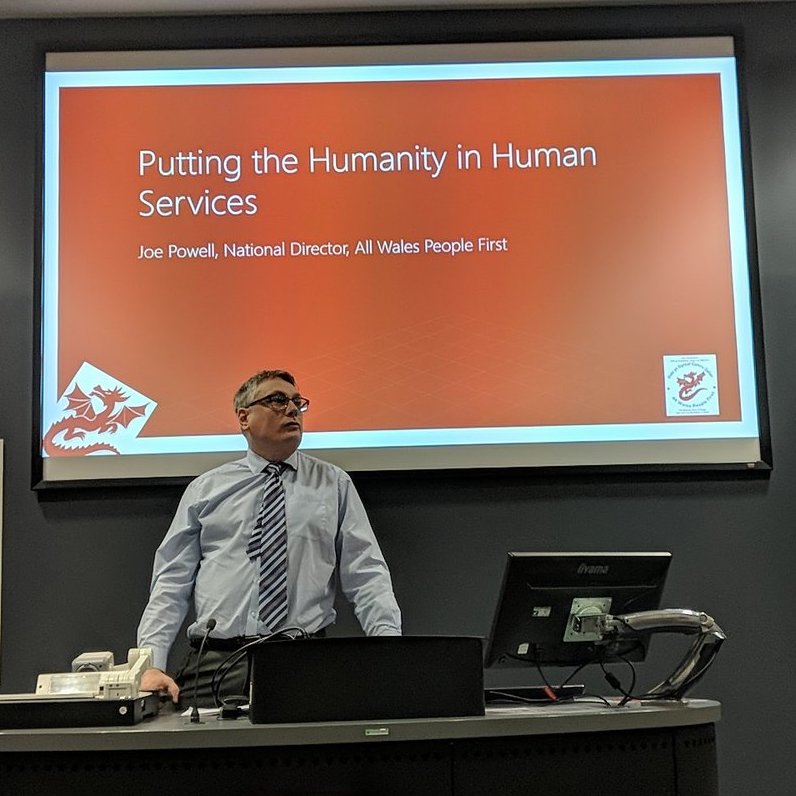
The medical approach is very important but it has to work in symbiosis with the social model.
Joe Powell
After a quick cup of coffee, we gave our attendees the chance to give us feedback and input into our planning for the next phase of learning disabilities research at NCMH.
We asked each group to consider:
- What could the NCMH LD cohort be used for (eg academic questions to answer, intervention development, inform on policy)?
- When recruiting into the LD cohort, are we collecting the right information?
- How can NCMH facilitate and strengthen links between health and social care research, policy and practice?
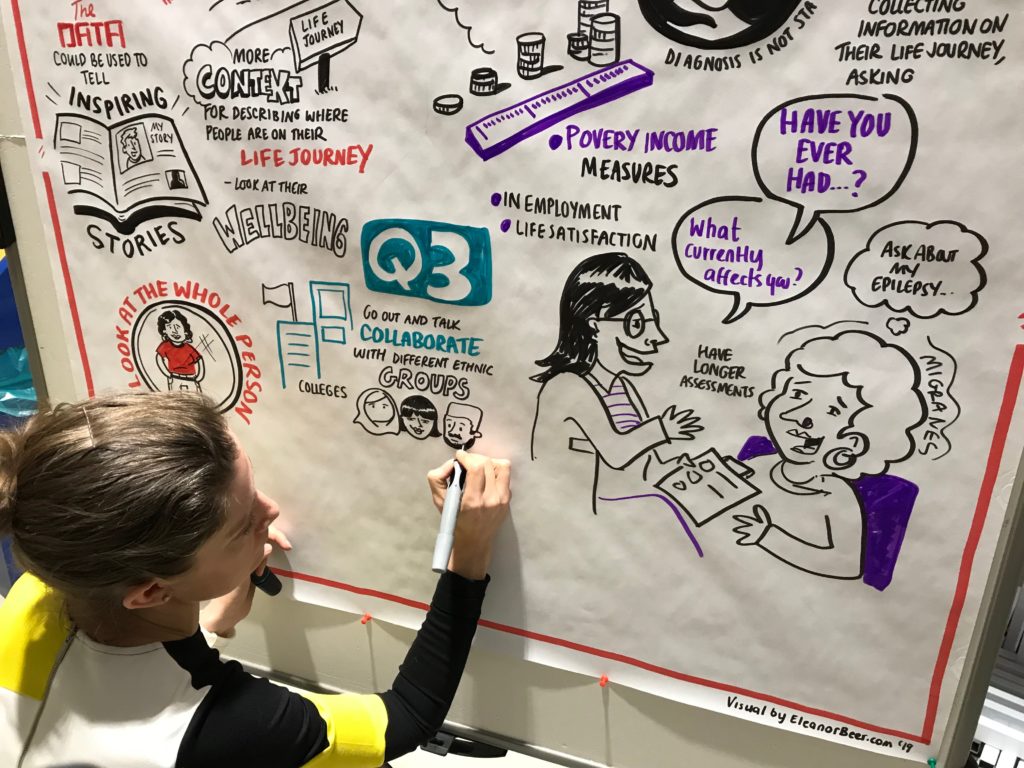
Each group came up with some excellent suggestions and their feedback will be used to inform our future plans.
We were pleased to have illustrator Eleanor Beer with us for the afternoon session. She translated our group discussions into the graphic below:
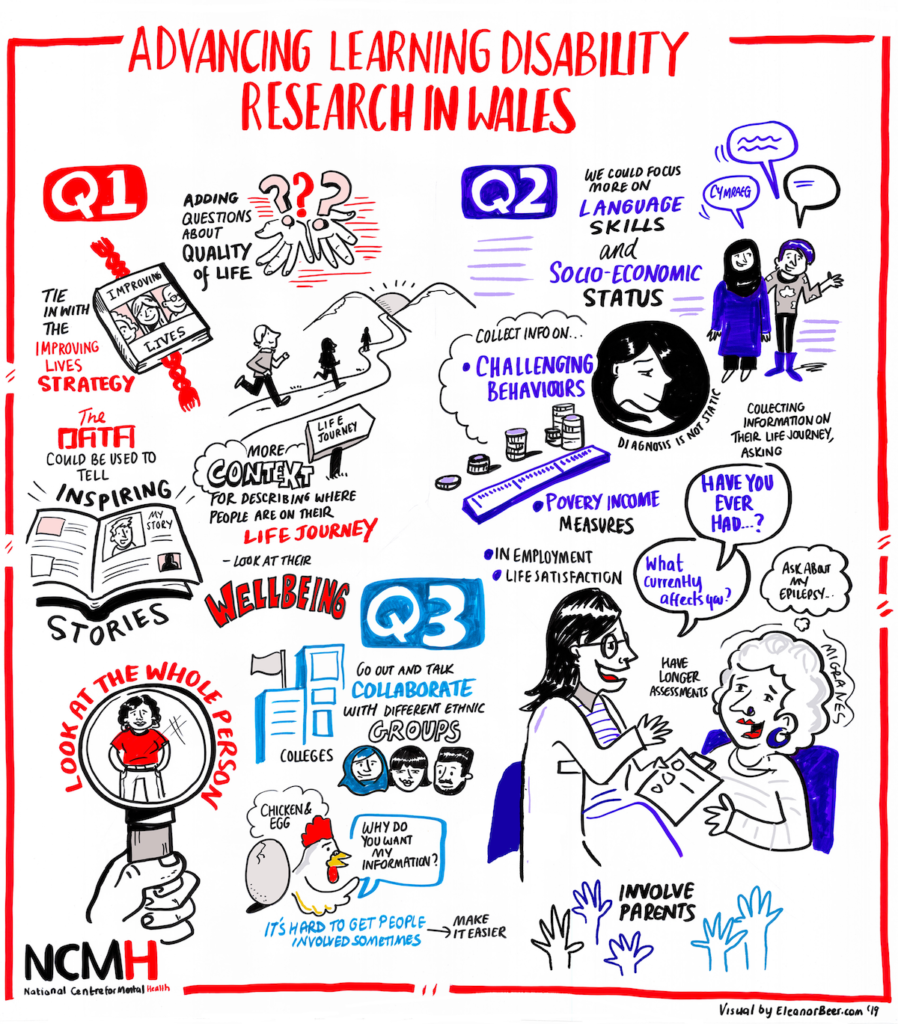
We would like to thank everyone who attended and thanks to Joe Powell for his brilliant talk and Eleanor Beer for her hard work illustrating our feedbackwe welcomed mental health professionals and people working in learning disability organisations for an afternoon of talks and discussions with the aim to help us evolve our work with people with learning disabilities who have signed up to take part in our research..
Resources
- Engage to Change
- Learning disability, mental health and challenging behaviour leaflet
- Mental health and Medication Wales – a free resource
- Read Dr Jack Underwood’s paper – ASD Diagnosis in Adults
Sign up now and receive new blog posts to your inbox.
